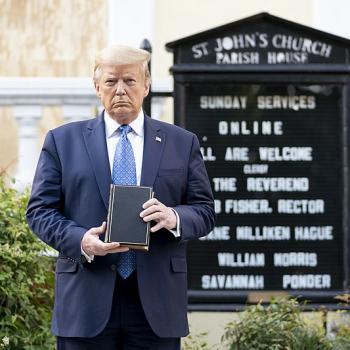The shut down continues.
The stock market responds to the shut down with a rumble, but basically keeps its head (so far), and people around the world are scratching their heads over the American shenanigans.
I hadn’t thought much about the response of non-Americans to all this. But for those who are wondering: We aren’t living in Mad Max land here in the USA. Our governance, and the powers that go along with it, is divided into so many pieces that it can clank along quite nicely, even if the money from Washington is cut off for a while.
In that sense, it is a misnomer to call this a “government shut down.” What it is, is a (hopefully temporary) stoppage in federal funding for select programs. I say select programs because Congress has evidently made a list of things that it will fund despite the fight.
The shutdown is entirely partisan in nature. The Ds and the Rs are fighting over who’s the boss. All the issues and rhetoric are just fluff. That’s what the fight is really about. I think it’s quite clear that the side that decided to throw down was the Rs. They initiated the fight. When they claim otherwise, that’s just spin.
The Ds, for their part, appear to be unwilling to talk with their colleagues on the other side of the aisle. Everybody hates everybody else, and nobody cares about much of anything outside their personal vendettas against one another.
What the Rs have in this battle is veto power. They control one house (the House of Representatives) in Congress. The Ds control the other house (the Senate) and the presidency. It takes all three of these bodies to make a legitimate law.
Legitimate laws are different from Presidential executive orders, which are end runs around the legitimate authority of Congress. Legitimate laws are also different from agency rules, which are not always, but can be, another end run around Congressional authority. These orders and rules amount to a kind of presidential fiat which, in my opinion, subverts the power of the people and turns the president into something akin to an elected dictator. For a list of President Obama’s executive orders, go here.
For instance, the First-Amendment-busting HHS Mandate is not a law. It is also not an executive order. It is an agency rule, written by an appointed committee and signed by the president. Congress has always had the power to reject this rule without even addressing the underlying Affordable Health Care Act. It simply has not — primarily because of blind partisan loyalties — had the will. It is interesting that this HHS Mandate has fed significantly into this budget crisis.
The Rs can’t pass anything into law without the support of the Democrats in the Senate and the signature of the Democratic President. The Democrats can’t pass anything into law without the support of the Rs in the House.
The Ds and the Rs both have enough clout to unilaterally stop laws from passing. Neither of them can pass a law without the other. The increasing abuse of executive orders by each subsequent president for the past several decades has shorn Congress of much of its legitimate Constitutional power. When Congress refuses to enact a law, the President often just writes an executive order and does whatever he wants, anyway.
Congress has also ceded much of its war-making powers to the president. In fact, Congress has ceded most of its power as a policy-making body to the presidency. I think the major reason for this is that members of Congress no longer act as individuals. They are entirely divided along partisan political lines, the country be damned. They have eschewed their rightful concern for the American experiment in representative democracy to promote party ideologies.
The battle of the budget is over one of the few major powers that Congress has not, in its blind party loyalties, ceded to the presidency: The power to fund government.
The Rs are using their veto power to stop the bulk of the federal budget from passing into law. But they are allowing funding for a select groups of agencies and functions. I believe this is largely determined by the political heat they feel when they don’t fund these things.
Congress has become so divided along partisan lines that it is no longer able to assert its policy making authority, except in these destructive partisan standoffs that damage both the country and the institution of Congress itself. This creates a vacuum of power that is increasingly being filled by presidential fiat.
I, for one, would support moves by Congress as a body to reassert itself and its rightful authority in the governance of this country. However, these party-loyalty bear and bull fights do not enhance Congressional powers. They make a mockery of them. Until the people we elect can see beyond party loyalties and begin to act on behalf of the needs of this country and its people, Congress is only going to grow weaker and the presidency will move further toward an elected dictator.
You can find contact information for members of Congress and the President here.
See shut down news from around the web. Keep in mind that even though one house of Congress passes a bill, it is not law until the other house passes it and the president signs it:
House Approves Back Pay for Furloughed Workers
66 Questions and Answers about the Shutdown
Shut Down will Stall Home Loans for Thousands
Shutdown Losers and Not Quite Losers
Boehner: No End to Government Shutdown without Concessions
Stock Market Shaken by Shutdown, but Debt Default Would be Much Worse
Don’t Believe the Debt Ceiling Hike: The Federal Government Could Survive Without an Increase












